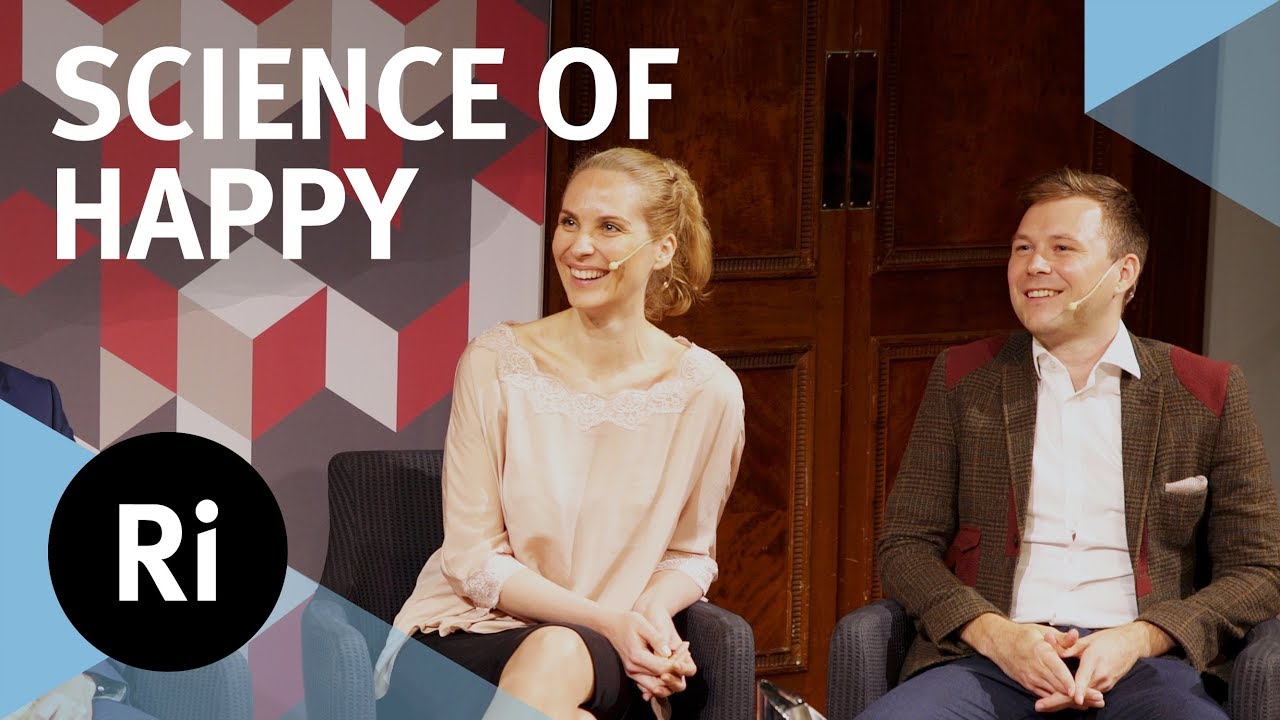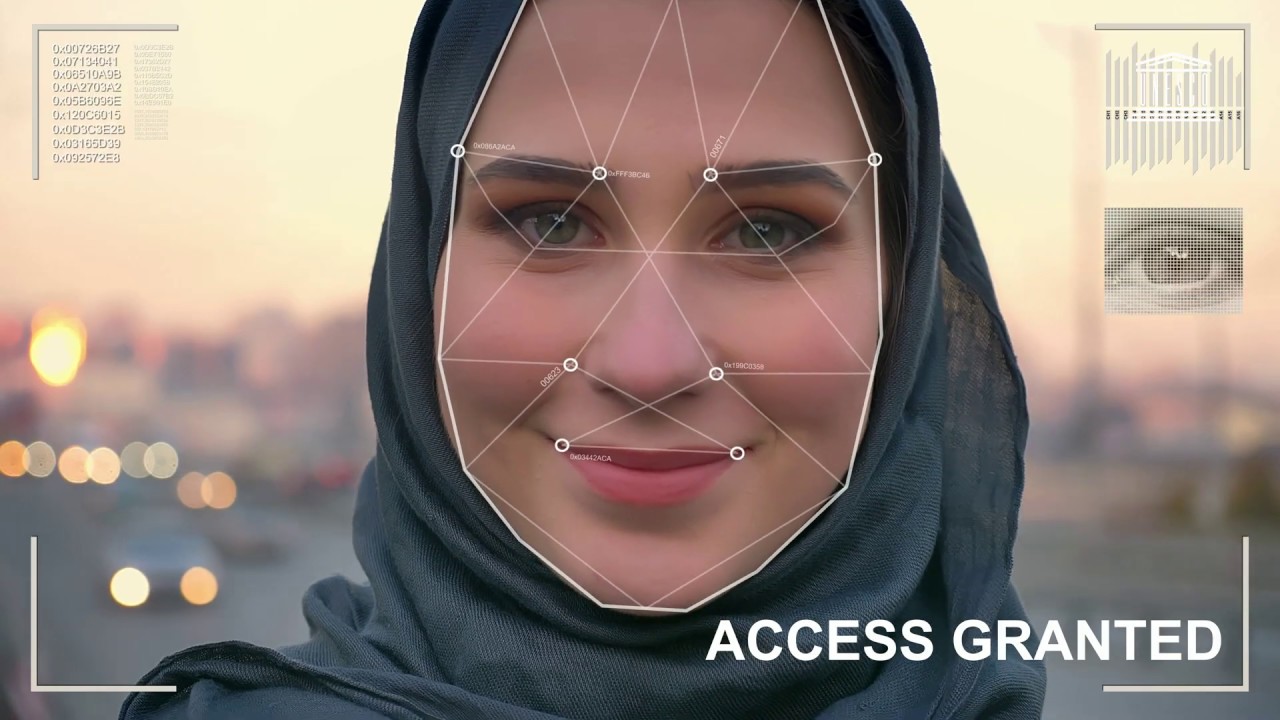The Royal Institution
We know a fair amount about depression, fear, disgust and anxiety, but positive emotions have so far remained mysterious.
Subscribe for regular science videos: http://bit.ly/RiSubscRibe
Vin Walsh and a panel of experts discuss the psychology and the neuroscience of happiness.
Vin Walsh is a Professor of Human Brain Research at the Institute of Cognitive Neuroscience, UCL.
Julia Christensen is a Newton International Postdoctoral Research Fellow at City University, specialising in the neural underpinnings of emotional expertise.
Morten Kringelbach is a professor of neuroscience at the universities of Oxford and Aarhus, Denmark. His research uses pleasures such as food, sex, drugs and music to understand pleasure and well-being in the human brain.
Joe Gladstone is an Assistant Professor at University College London. Named one of the top 30 people under 30 in Finance by Forbes Magazine, Joe’s research draws from both Behavioural Economics and Consumer Psychology to understand how we can help people to improve their financial decisions.
Watch the Q&A here: https://youtu.be/syccKpYpOig
The Ri is on Twitter: http://twitter.com/ri_science
and Facebook: http://www.facebook.com/royalinstitution
and Tumblr: http://ri-science.tumblr.com/
Our editorial policy: http://www.rigb.org/home/editorial-policy
Subscribe for the latest science videos: http://bit.ly/RiNewsletter
Source




Thinking Emoji
The first guy was great.. The second presenter was a bit of a waste of time.. And that final thing was just ridiculous
It's even simpler, the natural state is happiness, children are still close(r) to this.
If you can learn to really rest in your being, in pure consciousness, the mind slows down and you are happy, in other words, living in the moment.
But it's clouded by the mind that has become completely neurotic, through emotional suppression, a culture based on separation/domination, a stressful unnatural lifestyle, not trusting in life and believing in our thoughts and our apparent identity.
at the start: joy (laughing babies) "why are they so happy? why does this make them feel so good?" — I cannot help but think of Jaak Panksepp's work of brain structures, and the system for "joy" – which Panksepp (also dubbed "The Rat Tickler") he says is only experienced with social interaction, or at least the expectation of social sharing. This brain structure is not human, but evolutionarily very widely present (mammals, birds, fish, to an evolutionary extent, reptiles…) – so: why do we experience joy? The safety of not being alone. Is it emotional, or something about survival and survivability? For me, clearly the latter. So, the "why" seems actually fundamentally simple at this (crying baby, or tickled rats) level.
Dance! Mmmmmmmm…….
I thought this was interesting, but I fail to see how research like this is beneficial. These intelligent individuals should be aiming their efforts towards the fight for survival.
Wait, no one mentioned nutrition? To be happy, a well-fed brain must be of primary importance.
"On a side note, I guess it could just be all the responsibilities you have during that time of life." Yeah no shit, of course that's what it is.
Refreshing stimulating thank you
Hedonic Adaptation is the big killer of happiness. The cure is to keep changing/varying the things that bring us joy and slowly improving our levels of well-being like the last speaker said.
FIRSTLY, THANKS…I WANT TO WATCH ALL THESE VIDS…
A PUBLIC ANNOUNCEMENT I AM SHARING WITH THE COMMUNITEE TODAY. ENJOY…
GENETICS – the beneficial techniques of the lesser groups must be adapted by the greater portion, for success of humans.
You are automated by this code and will never stop being the universal extension of its development – in the realm of the "human magnitude".
What groups and interactions can we measure. Can we communicate a social rationalaity?
1. As a species population increases, the possible number of capable interactions increases.
So, as elite group dominate resources
via mental and physical force; including Money, propaganda and weaponry(arms)THE ,EVER INCREASING, MINORITIES MUST CONTINUOUSLY ADAPT WITH SHARING AND SUPPORTING TECHNIQUES USING AN IMPROVED MEMORY AND TRUST SYTEM; SO AS TO MAINTAIN COOPERATION FOR LONGER TIMEFRAMES.2. tHE "ELITE MINORITY" INEVITABLY SENSE THIS AND TIGHTEN CONTROLS. An attept to lessen the success of its competitors.
( So, will the "subordinate minorities( subordinat majority)" always be needed to develop and work out solutions?)
Reasons for and administering crackdown may include but not limited to:
– We are working in your interests ,seemingly, because we are attacking powers ( other manipulators)
reasonably subordinate to ourselves.
– Adding noise to the information gathering. An example is using the power of mass media. By repeating, seemingly insignificant, words in such a way as too make more out of some minor scientific sub category of skin colour. People have attempted this with the word "Race" using mass pop psychology. Quite successfully in America and UK… Growing popularism in Australia.
3. Current adaptions needed for the sustainability:
– Overcome the fear of failire and the lack of confidence in the techniques that we have used many times before to overcome similar problems. Innovation !….No more relying on massacring distant relatives for resources.
– Why have each one of us not made ourselves and our neighbour self sufficient in energy.
1. Who will now calculate the energy per household needed.
2. Who will design lighting and cooking systems to be costed?
3. The same with production and distribution of water systems for cleaning and food assembling…
4. Sewage treatmet and medicine, even if people were not driving and maintaining roads.
4. Reason not to worry: As we work together to solve each minor problem , 1by1. We are taking control of our own lives and consider this…
As Technology performs all the trivial tasks. there is going to be more health and education and less reasons for the dividuals or the coorporations to commit crime. BANKS WILL ONE DAY BE A PRIMITIVE CONCEPT OF THE PAST…
we have a hindu god for dance called nataraja(king of dance?). who's statues are like what she said, has a round shape around his statue. pretty interesting. https://en.wikipedia.org/wiki/Nataraja
I start to hate google because of all its useless regulations. What is this??? 11:47
They cut out James Brown, he looked like a goof ball with no music playing, lol, good info though
the first guy reminds me of Sherlock Holmes
Enjoyably composed presentation Vin, thank you
I love how the first guys explained everything. Anyway, great video.
Learn more about #neuroscience and check out Susan Greenfield video here https://www.youtube.com/watch?v=GxghpGyApNM&t=3s #SusanGreenfield
All things we do, are and can always be reduced to cyclical trust in practice of Hope and Love as we seek Happiness!
Ps. Love is a continual belief in the variable choice as Hope (not its result) for Happiness._Human Nature Pattern
(Qualifications Criteria) https://www.facebook.com/notes/eternal-optimism/eo-qualifications/10151955717990720/
(E.O Pursuit of Happiness) https://www.facebook.com/notes/eternal-optimism/the-eo-pursuit-of-happiness/10151897405545720
Didn't get past the depressing babies at the beginning
happiness make country rich, not the other way